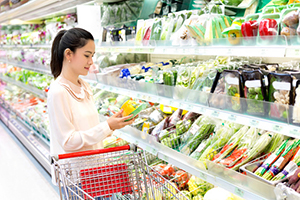The Food Headache - What You Need to Know
Posted on 8/1/2025 by Singing River Dentistry - Athens |

Have you ever experienced a headache after eating certain foods? If so, you're not alone. Many people suffer from food headaches, which are headaches triggered by specific foods or food additives.
In this article, we will discuss the causes, symptoms, diagnosis, and treatment of food headaches. We will also provide tips on how to identify your food triggers and avoid them.
Causes of Food Headaches
Food headaches can be caused by a variety of factors, including:
| • |
Food allergies: Food allergies occur when your immune system mistakenly identifies a certain food as harmful. This triggers the release of chemicals that can cause inflammation and pain, including headaches. |
| • |
Food intolerances: Food intolerances are similar to food allergies, but they do not involve the immune system. Instead, they are caused by the body's inability to properly digest certain foods. This can also lead to inflammation and pain, including headaches. |
| • |
Food additives: Certain food additives, such as MSG, nitrates, and artificial sweeteners, can trigger headaches in some people. |
| • |
Alcohol and caffeine: Alcohol and caffeine can also trigger headaches in some people, especially if they are consumed in large amounts. |
| • |
Dehydration: Dehydration can also trigger headaches, as it can lead to changes in blood flow and brain function. |
Symptoms of Food Headaches
The symptoms of food headaches can vary from person to person, but they typically include:
| • |
Throbbing or pulsating pain in the head |
| • |
Nausea and vomiting |
| • |
Sensitivity to light and sound |
| • |
Fatigue |
| • |
Dizziness |
Food headaches can start within minutes or hours after eating the trigger food. They can last for several hours or even days.
Diagnosis of Food Headaches
If you experience headaches after eating certain foods, it is important to see a doctor to get a diagnosis. Your doctor will ask you about your medical history, diet, and lifestyle. They may also perform a physical exam and order some tests, such as a blood test or allergy test, to rule out other conditions.
Treatment of Food Headaches
The best way to treat food headaches is to avoid the trigger foods. If you can identify your food triggers, you can avoid them and prevent future headaches.
In some cases, your doctor may recommend taking over-the-counter pain medication, such as ibuprofen or acetaminophen, to relieve the pain of food headaches. In rare cases, they may prescribe stronger medication, such as a triptan.
Tips for Identifying Food Triggers
If you think you may be suffering from food headaches, there are a few things you can do to try to identify your food triggers:
| • |
Keep a food diary: Track everything you eat and drink, as well as when you experience headaches. This can help you identify patterns and pinpoint the foods that are most likely to trigger your headaches. |
| • |
Eliminate suspect foods: Once you have identified a few suspect foods, try eliminating them from your diet for a few weeks to see if your headaches improve. |
| • |
Reintroduce foods one at a time: Once you have eliminated suspect foods, start reintroducing them one at a time to see if they trigger your headaches. |
| • |
Talk to a registered dietitian: A registered dietitian can help you develop a personalized elimination diet to identify your food triggers. |
Conclusion
Food headaches can be a nuisance, but they are usually not serious. By identifying your food triggers and avoiding them, you can prevent future headaches and improve your quality of life. If you have any concerns about food headaches, talk to your doctor.
|
|
